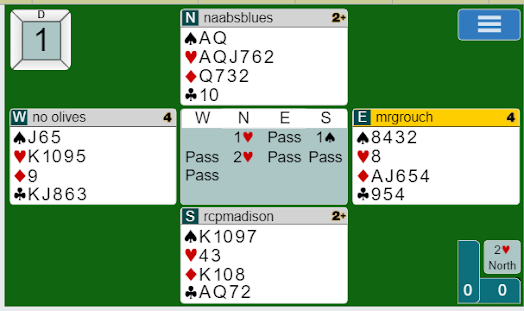Vic:
In the world of bridge the word "always" means "almost always" & the word "never" means "almost never". So a quick answer to the question you pose would be "No". In the specific example above, however, the quick answer is "Yes".
Using the Rule of Twenty (plus two), South has an opening hand. The "Twenty" is arrived at by adding 12 HCP's to 8 cards in two longest suits. The 2.5 quick tricks actually exceeds the "plus two" requirement of 2.0 quick tricks. On a side note the Loser Count (7) also meets the expectation of a standard opening hand.
So once North opens, South needs to make sure the bidding does not stop short of game. The term "game" used in this context means at least to the three level in NT or at least to the 4 level in a suit contract. It does NOT mean forcing to the 5 level in the unhappy event the pair feels compelled to play in clubs or diamonds (clubs are for the golf course - diamonds are for your finger).
One spade (a forcing bid) is the appropriate first bid for Responder (so far so good). The 2H second bid by Opener promises at least a 6 card heart suit & a point count towards the bottom of the 13-21 point range they promised when they opened. South now knows they have "golden fit" (8 or more cards) in hearts. Lacking a forcing bid, south should next bid 4H (the stronger the hand the slower the bidding - but once you know you need to either go or make a bid you know is forcing). Holding an invitational hand, South should bid 3H to tell opener about the golden fit. Holding less than an invitational hand south could pass 2H.
Remember, it is the number of
cards you hold in the trump suit that is of primary importance. Quality is nice
as well, but not as critical as number. If hearts is trump, those two small
hearts in the South hand will take Aces & Kings in other suits. Equally
important is the fact that they represent two hearts that the opponents do NOT
have. Ain't bridge a great game?

No comments:
Post a Comment